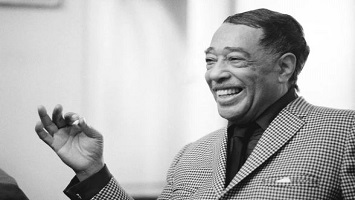
Duke Ellington Net Worth and Musical Empire
Duke Ellington is one of the most influential figures in the history of jazz music. His career, spanning over 50 years, not only reshaped the landscape of jazz but also elevated the genre into a respected art form. Known for his innovative compositions, iconic orchestral arrangements, and groundbreaking performances, Ellington’s influence on music is immeasurable. But beyond his musical prowess, Duke Ellington was also a savvy businessman who amassed significant wealth throughout his lifetime. In this post, we’ll explore the net worth of Duke Ellington, the legacy of his music, and how his financial empire was built alongside his musical one.
The Early Years: A Talented Prodigy
Edward Kennedy Ellington was born on April 29, 1899, in Washington, D.C. His early exposure to music came from his mother, who was an accomplished pianist. By the age of seven, Ellington was already taking piano lessons, and by his teens, he was playing professionally in local clubs and theaters. His career began in earnest in the 1920s, when he moved to New York City and started making a name for himself in the Harlem jazz scene. However, it wasn’t until the 1930s that Ellington’s career truly took off, when he became the bandleader of his own orchestra.
Ellington’s ability to blend jazz with classical music, his sophisticated arrangements, and his distinctive style set him apart from other musicians of his time. He composed thousands of pieces, many of which became jazz standards, including Mood Indigo, Take the “A” Train, and In a Sentimental Mood. His music transcended the boundaries of jazz and reached into the realms of classical, pop, and blues, making him a household name.
The Rise of Duke Ellington’s Empire
As Ellington’s career flourished, so did his wealth. In the early years of his orchestra, the band played at prominent venues like the Cotton Club in Harlem, where they performed to a primarily white audience. This exposure was crucial in establishing Ellington as a prominent figure in the entertainment industry. His orchestra was unlike any other; its unique blend of jazz and sophisticated orchestral arrangements attracted both popular and critical acclaim.
During the 1930s and 1940s, Ellington’s band grew in stature, performing across the United States and internationally. His lucrative tours and concerts earned him not just fame but also significant income. However, his wealth did not come solely from performances. Ellington was astute in understanding the business side of music. He earned substantial royalties from his compositions and recordings, which were widely distributed by major labels like RCA Victor and Columbia Records. His ability to write and arrange music for his orchestra made him not just a performer but a musical entrepreneur.
One of the key elements that contributed to Ellington’s fortune was his relationship with record labels. He was one of the first jazz musicians to fully understand the importance of owning the rights to his music and securing royalties. In a time when most musicians were exploited by record companies, Ellington made sure that his creative work generated substantial financial returns.
Duke Ellington’s Net Worth: Estimations and Impact
While it’s impossible to determine Duke Ellington’s exact net worth due to the lack of comprehensive financial records from his time, various sources estimate his wealth to be around $10 million to $15 million at the time of his death in 1974. When adjusted for inflation, this would be equivalent to around $60 million to $90 million in today’s currency.
Ellington’s wealth wasn’t just derived from his performances and recordings. He also earned income from his extensive catalog of compositions, which included hundreds of jazz standards, symphonic works, and film scores. His music was played all over the world, making him a global figure whose influence stretched far beyond the jazz community. He also made money from his role as a bandleader, managing an orchestra that toured internationally. In a time when many jazz musicians struggled financially, Ellington’s business acumen set him apart.
Legacy Beyond Wealth: How Ellington Changed Music Forever
Duke Ellington’s legacy goes far beyond his net worth. His contributions to jazz, classical music, and popular music were groundbreaking. He was not only a bandleader and composer but also an innovator in the way music was arranged and performed.
Innovative Compositions and Arrangements
Ellington’s most significant contribution to jazz was his ability to compose and arrange music that defied traditional boundaries. Unlike many of his contemporaries, Ellington was constantly experimenting with harmony, rhythm, and form. His compositions, such as Mood Indigo, Caravan, and Ko-Ko, revolutionized the jazz genre, introducing new concepts that would shape the future of music. He was one of the first musicians to experiment with extended orchestral jazz forms, blending classical techniques with jazz improvisation.
The Duke Ellington Orchestra: A Musical Institution
The Duke Ellington Orchestra became a symbol of musical excellence, and it was under his leadership that the band became one of the most celebrated jazz ensembles in history. Ellington was meticulous about the musicians he hired, bringing in talented performers like Johnny Hodges, Cootie Williams, and Charles Mingus. He also created a unique sound for the orchestra, focusing on the blend of individual instruments to create a cohesive ensemble.
Ellington’s orchestra toured the world, performing at prestigious venues such as the Carnegie Hall in New York and the Royal Festival Hall in London. These performances elevated jazz to the level of classical music, garnering respect from music critics and audiences alike.
Influence on Future Generations
Ellington’s impact on future generations of musicians is immeasurable. His influence extended beyond jazz to genres like rock, pop, and even classical music. Artists like Frank Sinatra, Count Basie, and Miles Davis all acknowledged Ellington’s contribution to their work. His compositional techniques, innovative orchestrations, and leadership style influenced countless musicians who followed in his footsteps.
Duke Ellington’s Business Acumen: The Financial Empire
In addition to his musical talent, Duke Ellington’s business sense helped him build an empire. He understood the power of branding, long before the concept became popular in modern music. He also invested in his own orchestra’s management, ensuring that the band operated as a professional business entity. Ellington was one of the first jazz musicians to tour internationally, securing income from global audiences and establishing himself as a global cultural ambassador.
In the later years of his career, Ellington began to focus more on composing larger-scale works, such as Black, Brown, and Beige (1943), a symphonic jazz suite that was performed at Carnegie Hall. These ventures, while artistically significant, also brought in significant revenue through performances and commissions. His continued success in both the jazz and classical worlds only helped to increase his wealth.
The Lasting Impact of Duke Ellington’s Legacy
Duke Ellington’s financial empire was built on his extraordinary musical talent, his innovative approach to jazz, and his sharp business acumen. With an estimated net worth in the millions, Ellington was not just a celebrated musician but also a savvy entrepreneur who understood the value of his art. His legacy lives on through the music he created, the musicians he mentored, and the millions of people who continue to listen to his compositions today.
Duke Ellington was not just a jazz musician; he was a cultural icon whose influence extended far beyond the boundaries of music. His legacy is not only measured in wealth but in the profound impact he had on music and the world.



